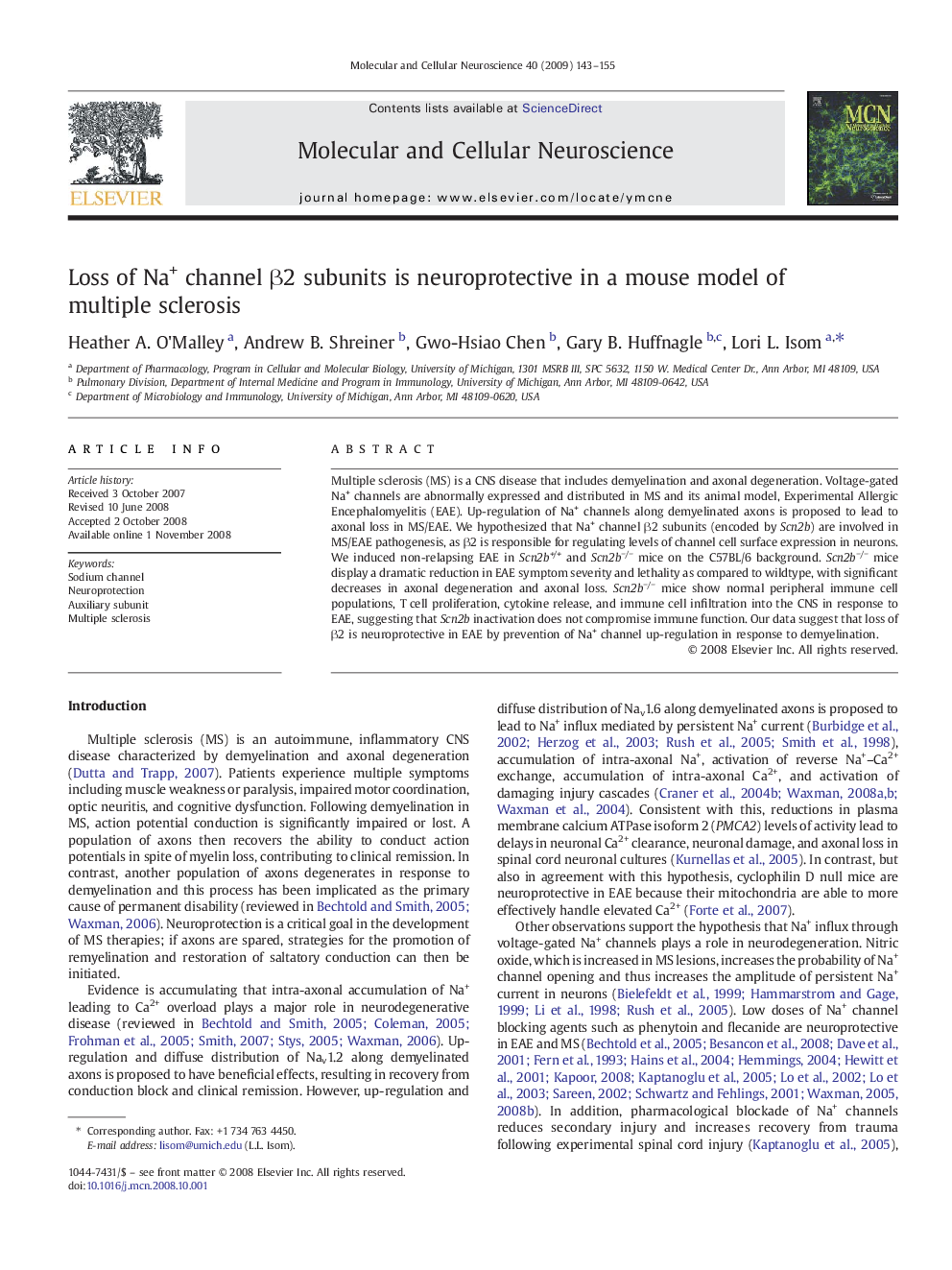| Article ID | Journal | Published Year | Pages | File Type |
|---|---|---|---|---|
| 10956711 | Molecular and Cellular Neuroscience | 2009 | 13 Pages |
Abstract
Multiple sclerosis (MS) is a CNS disease that includes demyelination and axonal degeneration. Voltage-gated Na+ channels are abnormally expressed and distributed in MS and its animal model, Experimental Allergic Encephalomyelitis (EAE). Up-regulation of Na+ channels along demyelinated axons is proposed to lead to axonal loss in MS/EAE. We hypothesized that Na+ channel β2 subunits (encoded by Scn2b) are involved in MS/EAE pathogenesis, as β2 is responsible for regulating levels of channel cell surface expression in neurons. We induced non-relapsing EAE in Scn2b+/+ and Scn2bâ/â mice on the C57BL/6 background. Scn2bâ/â mice display a dramatic reduction in EAE symptom severity and lethality as compared to wildtype, with significant decreases in axonal degeneration and axonal loss. Scn2bâ/â mice show normal peripheral immune cell populations, T cell proliferation, cytokine release, and immune cell infiltration into the CNS in response to EAE, suggesting that Scn2b inactivation does not compromise immune function. Our data suggest that loss of β2 is neuroprotective in EAE by prevention of Na+ channel up-regulation in response to demyelination.
Related Topics
Life Sciences
Biochemistry, Genetics and Molecular Biology
Cell Biology
Authors
Heather A. O'Malley, Andrew B. Shreiner, Gwo-Hsiao Chen, Gary B. Huffnagle, Lori L. Isom,
